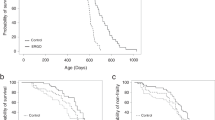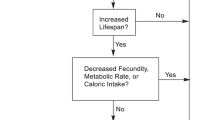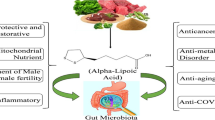Abstract
Current evidence suggests that intrauterine bisphenol A (BPA) exposure increases the risk of developing cardiovascular diseases in later stages of life. The beneficial effect of resveratrol (Rsv) on developmental programming of atherosclerosis lesions formation in offspring is seldom reported. Hence, we sought to study the effect of maternal Rsv in ameliorating perinatal BPA exposure-induced atherosclerosis lesions formation in adult offspring using the apolipoprotein E-deficient (ApoE−/−) mice model. The pregnant ApoE−/− mice were allocated into three groups: control, BPA, BPA + resveratrol (BPA + Rsv). The BPA group mice received BPA in their drinking water (1 μg/ml). BPA + Rsv group mice received BPA in their drinking water (1 μg/ml) and were treated orally with Rsv (20 mg kg−1 day−1). All the treatments were continued throughout the gestation and lactation period. Quantitative analysis of Sudan IV-stained aorta revealed a significantly increased area of atherosclerotic lesions in both female (p < 0.01) and male adult offspring mice (p < 0.01) in the BPA group. Supplementation with Rsv significantly reduced the BPA-induced atherosclerotic lesion development in the female offspring mice (p < 0.05). Transmission electron microscopy revealed the presence of a significantly high incidence of autophagic endothelial, smooth muscle, and macrophage cells in the aorta of BPA-exposed mice. Rsv treatment reduced the incidence of autophagic cells in BPA-exposed mice. In conclusion, maternal Rsv supplementation significantly prevents the BPA-induced atherosclerotic lesions formation in a sex-dependent manner potentially by acting as an autophagy modulator.




Similar content being viewed by others
Availability of data and material
Not applicable.
Code availability
Not applicable.
References
Aiken CE, Ozanne SE (2012) Sex differences in developmental programming models. Reproduction 145:R1–R13
Alonso-Magdalena P, Vieira E, Soriano S et al (2010) Bisphenol A exposure during pregnancy disrupts glucose homeostasis in mothers and adult male offspring. Environ Health Perspect 118:1243–1250
Angle BM, Do RP, Ponzi D et al (2013) Metabolic disruption in male mice due to fetal exposure to low but not high doses of bisphenol A (BPA): evidence for effects on body weight, food intake, adipocytes, leptin, adiponectin, insulin and glucose regulation. Reprod Toxicol 42:256–268
Argente-Arizon P, Ros P, Diaz F et al (2016) Age and sex dependent effects of early overnutrition on metabolic parameters and the role of neonatal androgens. Biol Sex Differ 7:26
Baird J, Jacob C, Barker M et al (2017) Developmental origins of health and disease: a lifecourse approach to the prevention of non-communicable diseases. Healthcare 5:14
Batista TM, Alonso-Magdalena P, Vieira E et al (2012) Short-term treatment with bisphenol-A leads to metabolic abnormalities in adult male mice. PLoS ONE 7:e33814
Boocock DJ, Faust GE, Patel KR et al (2007) Phase I dose escalation pharmacokinetic study in healthy volunteers of resveratrol, a potential cancer chemopreventive agent. Cancer Epidemiol Biomark Prev 16:1246–1252
Bourque SL, Dolinsky VW, Dyck JR, Davidge ST (2012) Maternal resveratrol treatment during pregnancy improves adverse fetal outcomes in a rat model of severe hypoxia. Placenta 33:449–452
Diaz-Gerevini GT, Repossi G, Dain A, Tarres MC, Das UN, Eynard AR (2016) Beneficial action of resveratrol: how and why? Nutrition 32:174–178
Dodds EC, Lawson W (1936) Synthetic estrogenic agents without the phenanthrene nucleus. Nature 137:996
Duewell P, Kono H, Rayner KJ et al (2010) NLRP3 inflammasomes are required for atherogenesis and activated by cholesterol crystals. Nature 464:1357–1361
Estampador AC, Franks PW (2014) Genetic and epigenetic catalysts in early-life programming of adult cardiometabolic disorders. Diabetes Metab Syndr Obes 7:575–586
Fan E, Zhang L, Jiang S, Bai Y (2008) Beneficial effects of resveratrol on atherosclerosis. J Med Food 11:610–614
Fang C, Ning B, Waqar AB et al (2014) Bisphenol A exposure enhances atherosclerosis in WHHL rabbits. PLoS ONE 9:e110977
Fang C, Ning B, Waqar AB et al (2015) Bisphenol A exposure induces metabolic disorders and enhances atherosclerosis in hyperlipidemic rabbits. J Appl Toxicol 35:1058–1070
Gluckman PD, Hanson MA, Pinal C (2005) The developmental origins of adult disease. Matern Child Nutr 3:130–141
Grootaert MOJ, Roth L, Schrijvers DM, De Meyer GRY, Martinet W (2018) Defective autophagy in atherosclerosis: to die or to senesce? Oxid Med Cell Longev 2018:7687083
Guo C, Li C, Myatt L, Nathanielsz PW, Sun K (2012) Sexually dimorphic effects of maternal nutrient reduction on expression of genes regulating cortisol metabolism in fetal baboon adipose and liver tissues. Diabetes 62:1175–1185
Han C, Hong YC (2016) Bisphenol A, hypertension, and cardiovascular diseases: epidemiological, laboratory, and clinical trial evidence. Curr Hypertens Rep 18:11
Hassanpour M, Rahbarghazi R, Nouri M, Aghamohammadzadeh N, Safaei N, Ahmadi M (2019) Role of autophagy in atherosclerosis: foe or friend? J Inflamm (lond) 16:8
Hsu CN, Hou CY, Tain YL (2021) Preventive aspects of early resveratrol supplementation in cardiovascular and kidney disease of developmental origins. Int J Mol Sci 22:4210
Juan ME, Vinardell MP, Planas JM (2002) The daily oral administration of high doses of trans-resveratrol to rats for 28 days is not harmful. J Nutr 132:257–260
Kim MJ, Moon MK, Kang GH et al (2014) Chronic exposure to bisphenol A can accelerate atherosclerosis in high-fat-fed apolipoprotein E knockout mice. Cardiovas Toxicol 14:120–128
Klionsky DJ, Cuervo AM, Seglen PO (2007) Methods for monitoring autophagy from yeast to human. Autophagy 3:181–206
Kurz T, Terman A, Brunk UT (2007) Autophagy, ageing and apoptosis: the role of oxidative stress and lysosomal iron. Arch Biochem Biophys 462:220–230
Lin R, Wu D, Wu FJ et al (2019) Non-alcoholic fatty liver disease induced by perinatal exposure to bisphenol a is associated with activated mTOR and TLR4/NF-κB signaling pathways in offspring rats. Front Endocrinol 10(10):620
Lind PM, Lind L (2011) Circulating levels of bisphenol A and phthalates are related to carotid atherosclerosis in the elderly. Atherosclerosis 218:207–213
Liu H, Cao Y, Tong T et al (2015) Autophagy in atherosclerosis: a phenomenon found in human carotid atherosclerotic plaques. Chin Med J (engl) 128:69–74
Liu TY, Yu HR, Tsai CC et al (2020) Resveratrol intake during pregnancy and lactation re-programs adiposity and ameliorates leptin resistance in male progeny induced by maternal high-fat/high sucrose plus postnatal high-fat/high sucrose diets via fat metabolism regulation. Lip Health Dis 19:174
Ma Y, Xia W, Wang DQ et al (2013) Hepatic DNA methylation modifications in early development of rats resulting from perinatal BPA exposure contribute to insulin resistance in adulthood. Diabetologia 56:2059–2067
Martel J, Ojcius DM, Chang CJ et al (2017) Anti-obesogenic and antidiabetic effects of plants and mushrooms. Nat Rev Endocrinol 13:149–160
Martinet W, De Meyer GR (2009) Autophagy in atherosclerosis: a cell survival and death phenomenon with therapeutic potential. Circ Res 104:304–317
Mela V, Llorente-Berzal A, Díaz F, Argente J, Viveros MP, Chowen JA (2012) Maternal deprivation exacerbates the response to a high fat diet in a sexually dimorphic manner. PLoS ONE 7(11):e48915
Melzer D, Gates P, Osborne NJ et al (2012) Urinary bisphenol A concentration and angiography-defined coronary artery stenosis. PLoS ONE 7:e43378
Meng Y, Yannan Z, Ren L, Qi S, Wei W, Lihong J (2020) Adverse reproductive function induced by maternal BPA exposure is associated with abnormal autophagy and activating inflamation via mTOR and TLR4/NF-κB signaling pathways in female offspring rats. Reprod Toxicol 96:185–194
Mitchinson MJ (1982) Insoluble lipids in human atherosclerotic plaques. Atherosclerosis 45:11–15
Miyawaki J, Sakayama K, Kato H, Yamamoto H, Masuno H (2007) Perinatal and postnatal exposure to bisphenol a increases adipose tissue mass and serum cholesterol level in mice. J Atheroscler Thromb 14:245–252
Mizushima N, Komatsu M (2011) Autophagy: renovation of cells and tissues. Cell 147:728–741
Mohanta S, Yin C, Weber C, Hu D, Habenicht AJ (2016) Aorta atherosclerosis lesion analysis in hyperlipidemic mice. Bio Protoc 6:e1833
Napoli C, D’ Armiento FP, Mancini FP, Postiglione A, Witztum JL, Palumbo G et al (1997) Fatty streak formation occurs in human fetal aortas and is greatly enhanced by maternal hypercholesterolemia. Intimal accumulation of low density lipoprotein and its oxidation precede monocyte recruitment into early atherosclerotic lesions. J Clin Invest 100:2680–2690
Napoli C, Glass CK, Witztum JL, Deutsch R, D’Armiento FP, Palinski W (1999) Influence of maternal hypercholesterolaemia during pregnancy on progression of early atherosclerotic lesions in childhood: fate of early lesions in children (FELIC) STUDY. Lancet 9(354):1234–1241
Oliveira ALB, Monteiro VVS, Navegantes-Lima KC et al (2017) Resveratrol role in autoimmune disease-a mini-review. Nutrients 9:1306
Paigen B, Plump AS, Rubin EM (1994) The mouse as a model for human cardiovascular disease and hyperlipidemia. Curr Opin Lipidol 5:258–264
Pattison JS, Robbins J, Martinez J, Tabas I (2012) Macrophage autophagy plays a protective role in advanced atherosclerosis. Cell Metab 15:545–553
Penumathsa SV, Thirunavukkarasu M, Koneru S et al (2007) Statin and resveratrol in combination induces cardioprotection against myocardial infarction in hypercholesterolemic rat. J Mol Cell Cardiol 42:508–516
Perrotta I (2013) The use of electron microscopy for the detection of autophagy in human atherosclerosis. Micron 50:7–13
Quan C, Wang C, Duan P et al (2017) Bisphenol a induces autophagy and apoptosis concurrently involving the Akt/mTOR pathway in testes of pubertal SD rats. Environ Toxicol 32:1977–1989
Rasdi Z, Kamaludin R, Ab Rahim S et al (2020) The impacts of intrauterine bisphenol A exposure on pregnancy and expression of miRNAs related to heart development and diseases in animal model. Sci Rep 10:5882
Rezaei Farimani A, Saidijam M, Goodarzi MT et al (2015) Effect of resveratrol supplementation on the SNARE proteins expression in adipose tissue of stroptozotocin-nicotinamide induced type 2 diabetic rats. Iran J Med Sci 40:248–55
Rochester JR (2013) Bisphenol A and human health: a review of the literature. Reprod Toxicol 42:132–155
Ros P, Diaz F, Freire-Regatillo A et al (2018) Resveratrol intake during pregnancy and lactation modulates the early metabolic effects of maternal nutrition differently in male and female offspring. Endocrinology 159:810–825
Sanches-Silva A, Testai L, Nabavi SF et al (2020) Therapeutic potential of polyphenols in cardiovascular diseases: regulation of mTOR signaling pathway. Pharmacol Res 152:104626
Shah A, Reyes LM, Morton JS, Fung D, Schneider J, Davidge ST (2016) Effect of resveratrol on metabolic and cardiovascular function in male and female adult offspring exposed to prenatal hypoxia and a high-fat diet. J Physiol 594:1465–1482
Shankar A, Teppala S, Sabanayagam C (2012) Bisphenol A and peripheral arterial disease: results from the NHANES. Environ Health Perspect 120:1297–1300
Song D, Chen Y, Wang B et al (2019) Bisphenol A inhibits autophagosome-lysosome fusion and lipid droplet degradation. Ecotoxicol Environ Saf 15(183):109492
Sui Y, Park SH, Helsley RN et al (2014) Bisphenol A increases atherosclerosis in pregnane X receptor-humanized ApoE deficient mice. J Am Heart Assoc 3:e000492
Sui Y, Park SH, Wang F, Zhou C (2018) Perinatal bisphenol A exposure increases atherosclerosis in adult male PXR-humanized mice. Endocrinology 159:1595–1608
Szkudelski T, Szkudelska K (2015) Resveratrol and diabetes: from animal to human studies. Biochim Biophys Acta 1852:1145–1154
Takahashi O, Oishi S (2000) Disposition of orally administered 2, 2-Bis (4-hydroxyphenyl) propane (Bisphenol A) in pregnant rats and the placental transfer to fetuses. Environ Health Perspect 108:931–935
Takeda-Watanabe A, Kitada M, Kanasaki K, Koya D (2012) SIRT1 inactivation induces inflammation through the dysregulation of autophagy in human THP-1 cells. Biochem Biophys Res Commun 427:191–196
Truong VL, Jun M, Jeong WS (2018) Role of resveratrol in regulation of cellular defense systems against oxidative stress. BioFactors 44:36–49
Wallack L, Thornburg K (2016) Developmental origins, epigenetics, and equity: moving upstream. Matern Child Health J 20:935–940
Wei J, Lin Y, Li Y et al (2011) Perinatal exposure to bisphenol A at reference dose predisposes offspring to metabolic syndrome in adult rats on a high-fat diet. Endocrinology 152:3049–3061
Williams LD, Burdock GA, Edwards JA, Beck M, Bausch J (2009) Safety studies conducted on high-purity trans-resveratrol in experimental animals. Food Chem Toxicol 47:2170–2182
Zhang Y, Cao X, Zhu W et al (2016) Resveratrol enhances autophagic flux and promotes Ox-LDL degradation in HUVECs via upregulation of SIRT1. Oxid Med Cell Longev 2016:7589813
Zheng J, Xiao X, Zhang Q, Wang T, Yu M, Xu J (2017) Maternal low-protein diet modulates glucose metabolism and hepatic micrornas expression in the early life of offspring dagger. Nutrients 9:1–14
Zheng S, Feng Q, Cheng J, Zheng J (2018) Maternal resveratrol consumption and its programming effects on metabolic health in offspring mechanisms and potential implications. Biosci Rep 38:BSR20171741
Zhu X, Wu C, Qiu S, Yuan X, Li L (2017) Effects of resveratrol on glucose control and insulin sensitivity in subjects with type 2 diabetes: systematic review and meta-analysis. Nutr Metab (lond) 14:60
Zou T, Chen D, Yang Q et al (2017) Resveratrol supplementation of high-fat diet-fed pregnant mice promotes brown and beige adipocyte development and prevents obesity in male offspring. J Physiol 595:1547–1562
Acknowledgements
We thank Kawther Al Adawi from the department of Pathology, Sultan Qaboos University for her help in TEM. We also thank Taconic Biosciences, Inc. for providing ApoE−/− mice.
Funding
This study was funded by Internal Grant no. IG/MED/ANAT/18/01 from Sultan Qaboos University.
Author information
Authors and Affiliations
Contributions
SRS, IAH, and MAM contributed to the study conception and design. SRS, IAH, and MAM conducted the animal experiments. SRS, IAH, NA and FA performed tissue processing, data collection and results analysis. SRS, IAH and MAM drafted the manuscript. NA and FA gave vital inputs to the manuscript. All authors commented on previous versions of the manuscript.
Corresponding author
Ethics declarations
Conflicts of interest
The authors declare that they have no conflict of interest.
Ethics approval
All the animal experimental procedures of the present study were conducted in accordance with the international laws and policies and were performed after obtaining the approval from the Sultan Qaboos University Animal Ethical Committee (SQU/AEC/2016–17/12).
Consent to participate
not applicable.
Consent for publication
All authors have read and approved the final draft of the manuscript for the publication.
Supplementary Information
Rights and permissions
About this article
Cite this article
Sirasanagandla, S.R., Al-Huseini, I., Al Mushaiqri, M. et al. Maternal resveratrol supplementation ameliorates bisphenol A-induced atherosclerotic lesions formation in adult offspring ApoE−/− mice. 3 Biotech 12, 36 (2022). https://doi.org/10.1007/s13205-021-03078-y
Received:
Accepted:
Published:
DOI: https://doi.org/10.1007/s13205-021-03078-y





